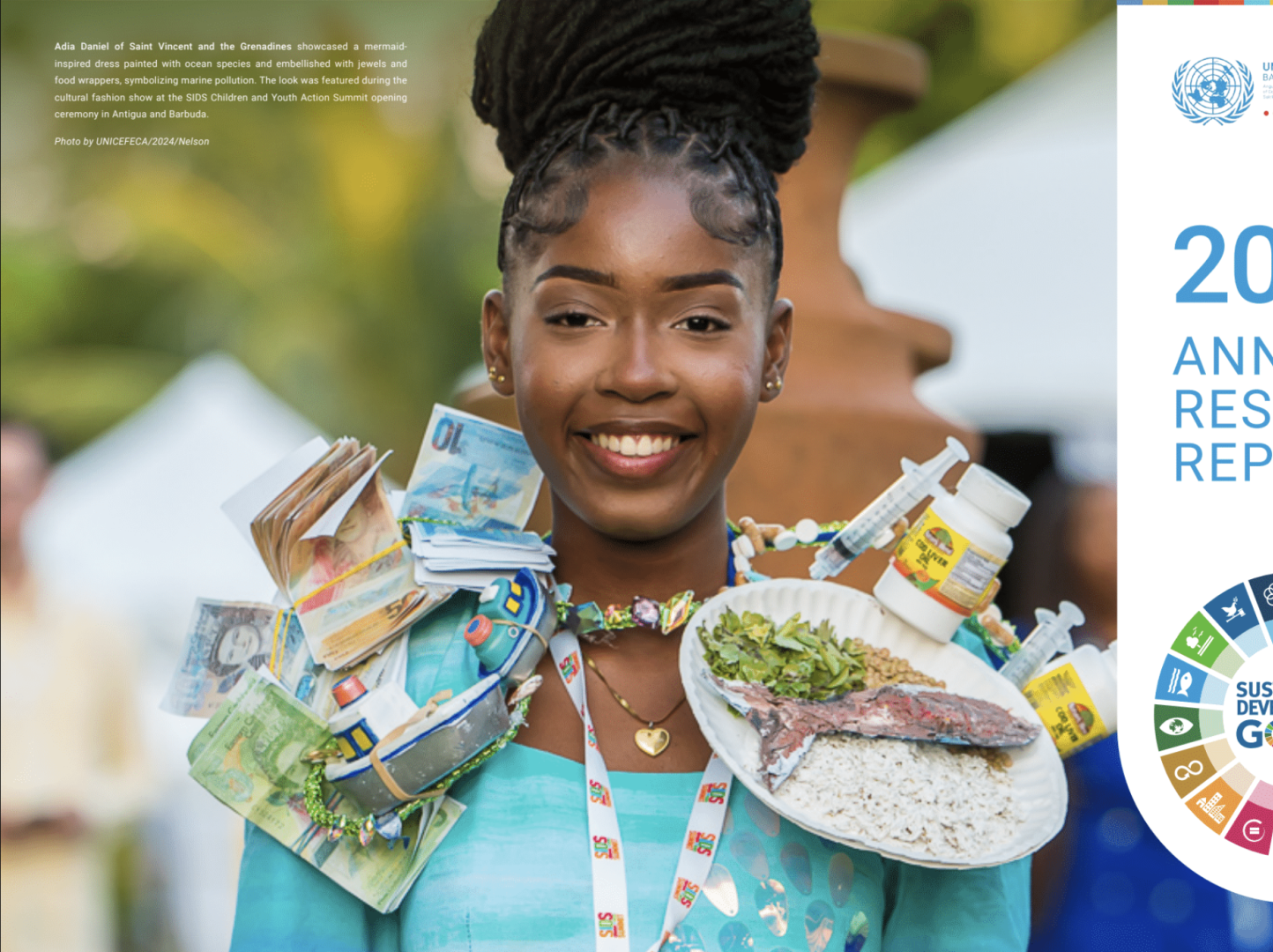WFP Caribbean Community Annual Country Report 2024

The Caribbean, home to 7.1 million people, remains highly vulnerable to climate-related shocks and economic fragility. In 2024, the region faced the compounded effects of hurricanes, droughts, and rising living costs, which severely impacted livelihoods and food security. Forty-three percent of households in English- and Dutch-speaking Caribbean countries reported food insecurity, disproportionately affecting low-income groups. Despite efforts to reduce reliance on food imports through CARICOM’s Vision 25 by 2025, recurring disasters and high food prices continue to threaten regional food security.
Amid these challenges, WFP supported governments under its 2022–2026 Multi-Country Strategic Plan (MCSP), balancing long-term capacity-building (SO1) with emergency response (SOs 2 and 3). Notable achievements included the launch of a Regional Logistics Hub and enhanced disaster response systems that now support over 1.5 million people. WFP’s technical assistance strengthened social protection, digitization, and disaster risk financing, notably through innovative links between CCRIF insurance payouts and national social systems—delivering $5.6 million in cash transfers in Grenada, Jamaica, and St. Vincent and the Grenadines.
A milestone in 2024 was the rollout of anticipatory action for hurricanes in Saint Lucia—the first in the Eastern Caribbean. These efforts reflect a transformative, forward-looking approach to resilience, preparedness, and recovery across the region.





